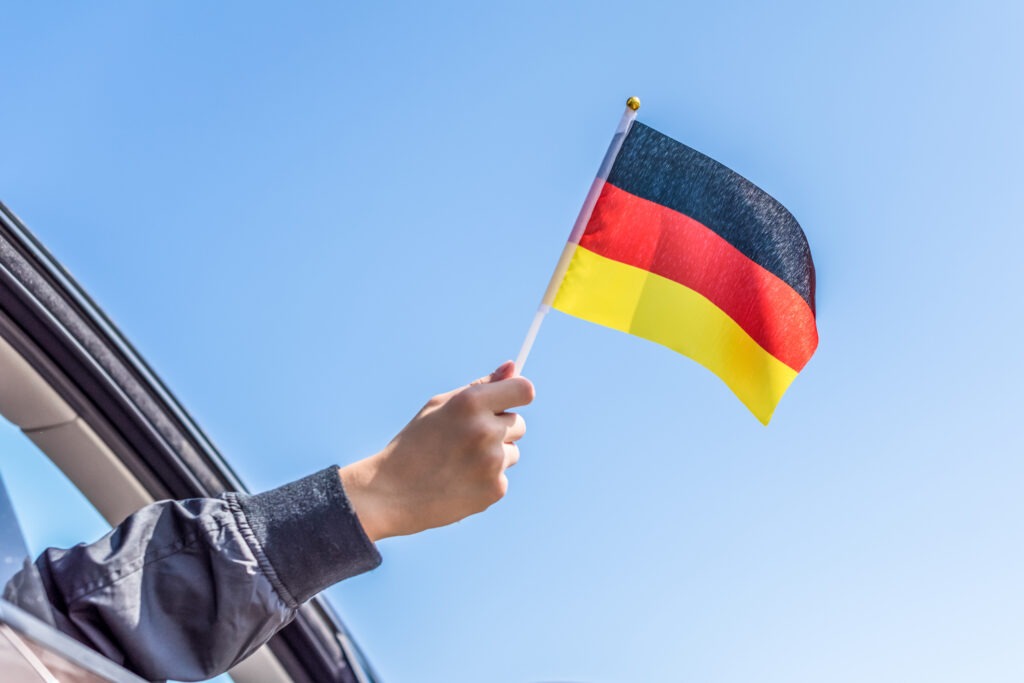Germany’s BEV market recovered in October as VW and Tesla slipped
14 December 2023

Germany’s battery-electric vehicle (BEV) market saw a recovery in October after September’s incentive-driven change. José Pontes, data director at EV-volumes.com, considers the implications for the likes of Volkswagen (VW) and Tesla.
The entire German new-car market returned to growth in October, with a 4.9% year-on-year increase in registrations. The BEV market also bounced back after September’s drop, up 4% on October 2022.
In total, 37,334 BEVs were registered in October, accounting for 17% of the overall market. Meanwhile, plug-in hybrids (PHEVs) recorded 16,361 registrations, making up 7.5% of the total market, just under half of last year’s share. BEVs represented 70% of all plug-in sales in October, five percentage points below the year’s average.
In total, electric vehicles (EVs), made up of BEVs and PHEVs, took a 24.5% share of the new-car market in October, keeping the year-to-date figure at 24%. With November and December likely to be stronger months, plug-in vehicles can be expected to end the year above the 25% share mark.
Skoda surprises competition
There was a surprise at the top of the EV best-seller table, as the Skoda Enyaq led the way in October with 2,579 registrations. It surpassed the Tesla Model Y in fifth with 1,649 registrations, as well as the VW ID.4 in 14th. The German brand struggled for demand with its ID. models drop, largely due to the company-car market dipping as subsidies ended.
Second place went to the Audi Q4 e-Tron, with 1,867 registrations, while third position went to the Fiat 500e. The Italian model achieved 1,760 registrations, overcoming the fourth-place MG4 with 1,722 units. The hatchback finished the month ahead of the Tesla Model Y which was 73 units behind, as well as the Tesla Model 3 with 1,607 deliveries.
Another shock was the BMW i4 securing seventh thanks to a record 1,444 registrations. The midsize saloon’s improved performance is significant, achieving the result two months after company-car subsidies ended.
Below the i4, the Mercedes-Benz GLC PHEV achieved its best result of the current generation, and its best score since December 2021 with 1,300 registrations. It took the title of October’s best-selling PHEV in Germany.
Opel placed two models in the table, with the Mokka EV in 12th generating 1,268 registrations and the Corsa EV in 20th, with 899 deliveries. The Skoda Octavia PHEV also joined the table in 17th with 974 registrations, its best result in over two years.
Outside the top 20, there were some interesting developments, such as the Audi Q8 e-Tron (786 units) at the top of the full-size category, after the Mercedes-Benz EQE took a surprise win in September.
There were also good performances from the BMW iX3 (799 units) and Renault Twingo EV (763 units), the latter being the French manufacturer’s best-selling model last month. The Twingo’s result highlights that city-car EVs are still in demand. Without much competition, the model can see good results, even with a nine-year-old design.
Further down the order, Great Wall’s Ora Funky Cat delivered 411 units in October, as the hatchback proved a useful reference for China’s growing presence in Europe.
Tesla’s triumph continues
Between January and October, the Tesla Model Y maintained a comfortable lead with an 18,000-unit advantage over the second-place VW ID.4. If it continues this trend, the popular BEV will win its second consecutive best-seller trophy in this market.
The VW ID.4 looks set to end the year in second, which would mark its first medal in its domestic market. Its stablemate in third, the VW ID.3, is in danger of slipping as its registrations slow.
The fourth-place Fiat 500e continued to recover ground over the German hatchback. A consistent stream of deliveries helped reduce the gap to just over 1,000 units between the two models. Skoda’s Enyaq in fifth has an outside chance to displace both models at the end of the year if its sales continue to surprise.
Below the battle for bronze, the Audi Q4-eTron and Cupra Born retained their places on the table in sixth and seventh respectively. The Tesla Model 3, currently in eighth, is expected to climb some positions with a decent volume of deliveries in December.
This is despite the brand being expected to prioritise the French market due to the end of subsidies for Chinese-made EVs at the start of next year. This means that at the current registration rate, the midsized BEV will not feature in the top three for the first time since 2018.
The only position change in the top half of the table occurred in 10th, with the Mini Cooper EV climbing one spot and displacing the Hyundai Kona EV.
Thanks to a strong result in October, the MG4 travelled the furthest up in the rankings, surging six positions into 11th. Just below, the Dacia Spring, the third made-in-China model in the table, gained one position to take 12th. Elsewhere, the Hyundai Ioniq 5 jumped two positions into 17th, while the Opel Mokka EV climbed one spot to 19th.
The Mercedes-Benz GLC PHEV returned to the rankings in 20th, joining the Mercedes-Benz C-Class PHEV (16th), in the top 20. If standings stay the same in December, it will mean half as many PHEV models will be present in the top-20 table compared to 2022.
German brand blockade
In the brand rankings, VW retained its lead, but again lost market share, falling to 11.4% from 11.9%, a big drop from its 12.8% share in July. This significant slowdown in demand could prevent the manufacturer from winning its fourth title in a row and matching BMW’s streak of wins between 2016 and 2019.
In second place, Mercedes-Benz kept its 11.2% share, putting the Stuttgart-based brand very close to the top spot. In third, Tesla saw a decline from a 10% share in September to 9.7%. Its share has been impacted by the Model 3 refresh, so a resurgence can be expected in November and December.
BMW was the only marque in the top four to increase its share, as it rose from 7.5% to 7.7% in October. With the BMW i4 growing in volume, the brand is climbing, having increased its share from 7.3% in August.
Meanwhile, Audi saw an incremental increase to 6.7% from 6.6%, as the carmaker maintained fifth place while recovering from the end of BEV subsidies.
Just outside the top five, Opel (4.8% share, up from 4.7%) closed in on sixth-place Hyundai (5%, down from 5.1%) with a close finish expected for the two manufacturers.
When looking at automotive groups, with brand figures brought together under their parent companies, VW Group was still in firm control of its domestic market with a 27.2% share. However, it has lost share in the last three months, when the group held 28.8% in July. This could foreshadow a weaker outlook for the brand’s 2024 ranking.
Runner-up Mercedes-Benz was some distance behind with a 13.8% share. The OEM profited from a solid performance from its namesake brand in October. Stellantis also benefited from a strong month as its share climbed to 12.6%.
Fourth-place Tesla maintained a 9.7% share but faces a charging BMW Group in fifth, also taking a 9.7% share, up from 9.5% in September. However, the US company can be expected to rebound in November.



